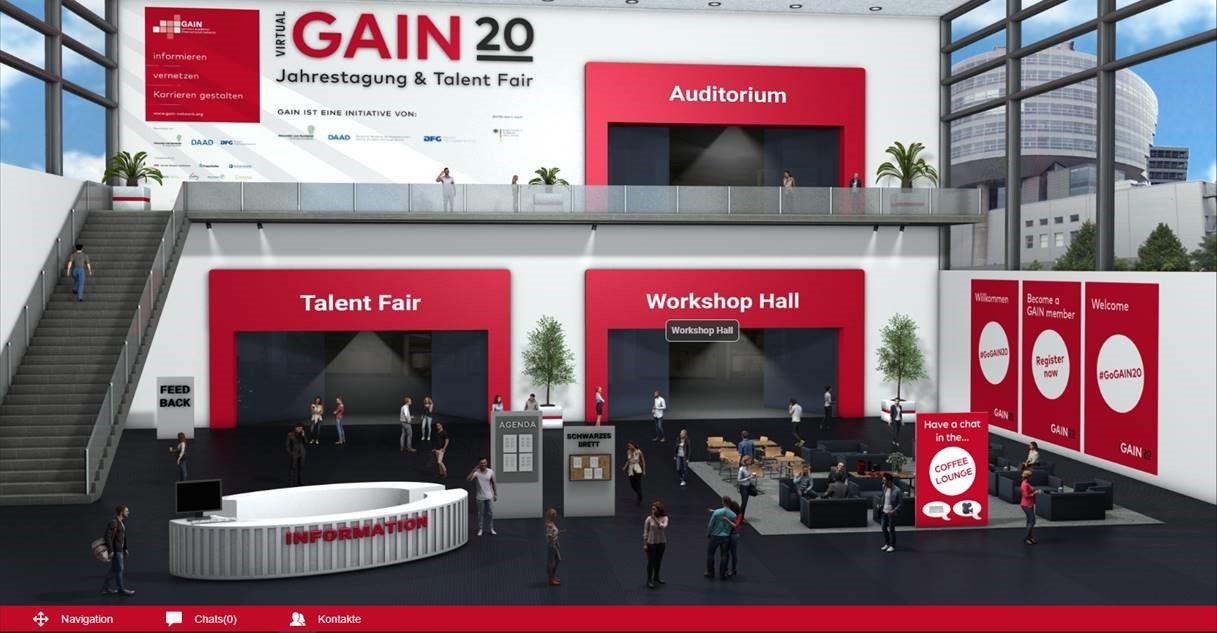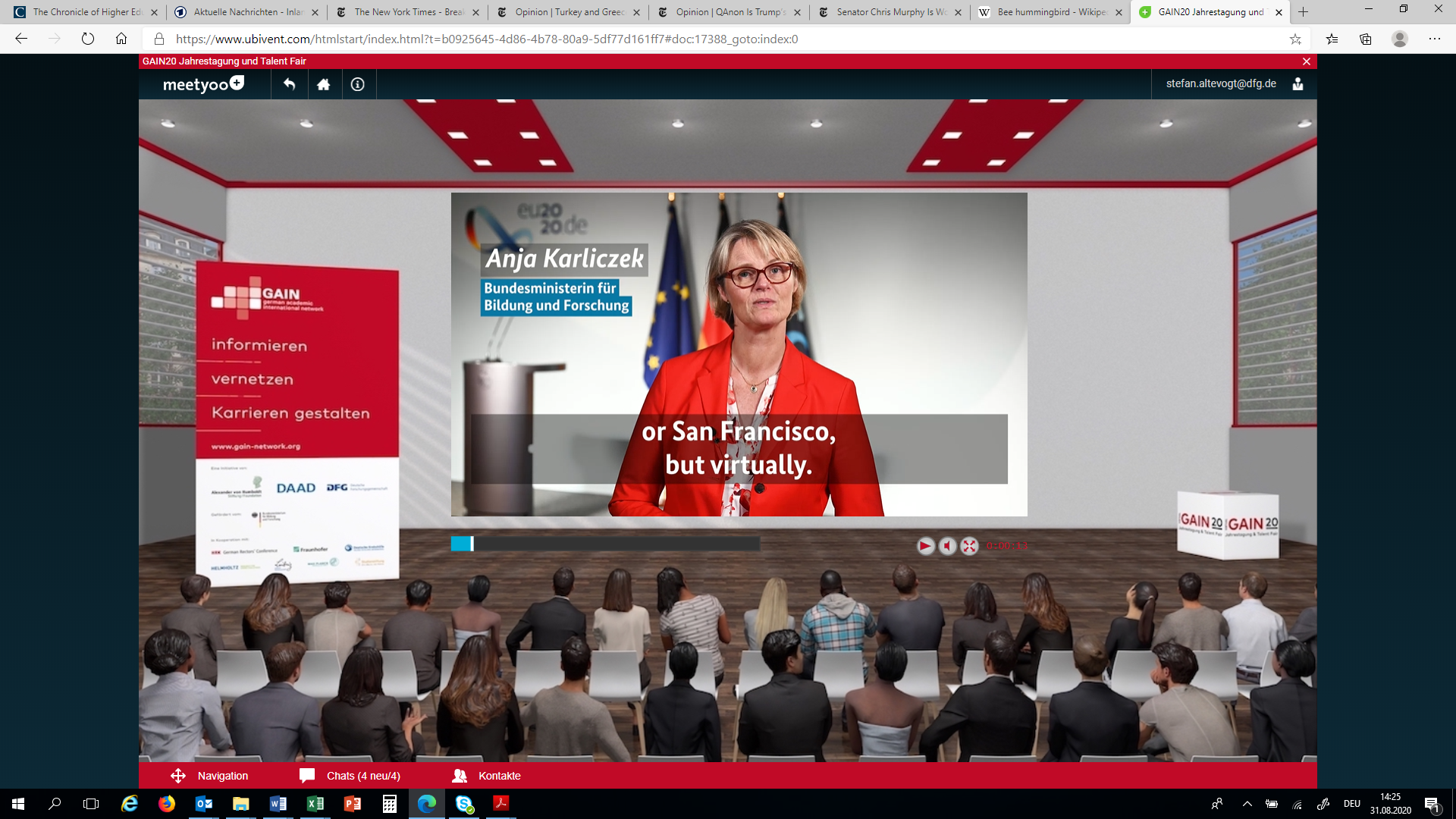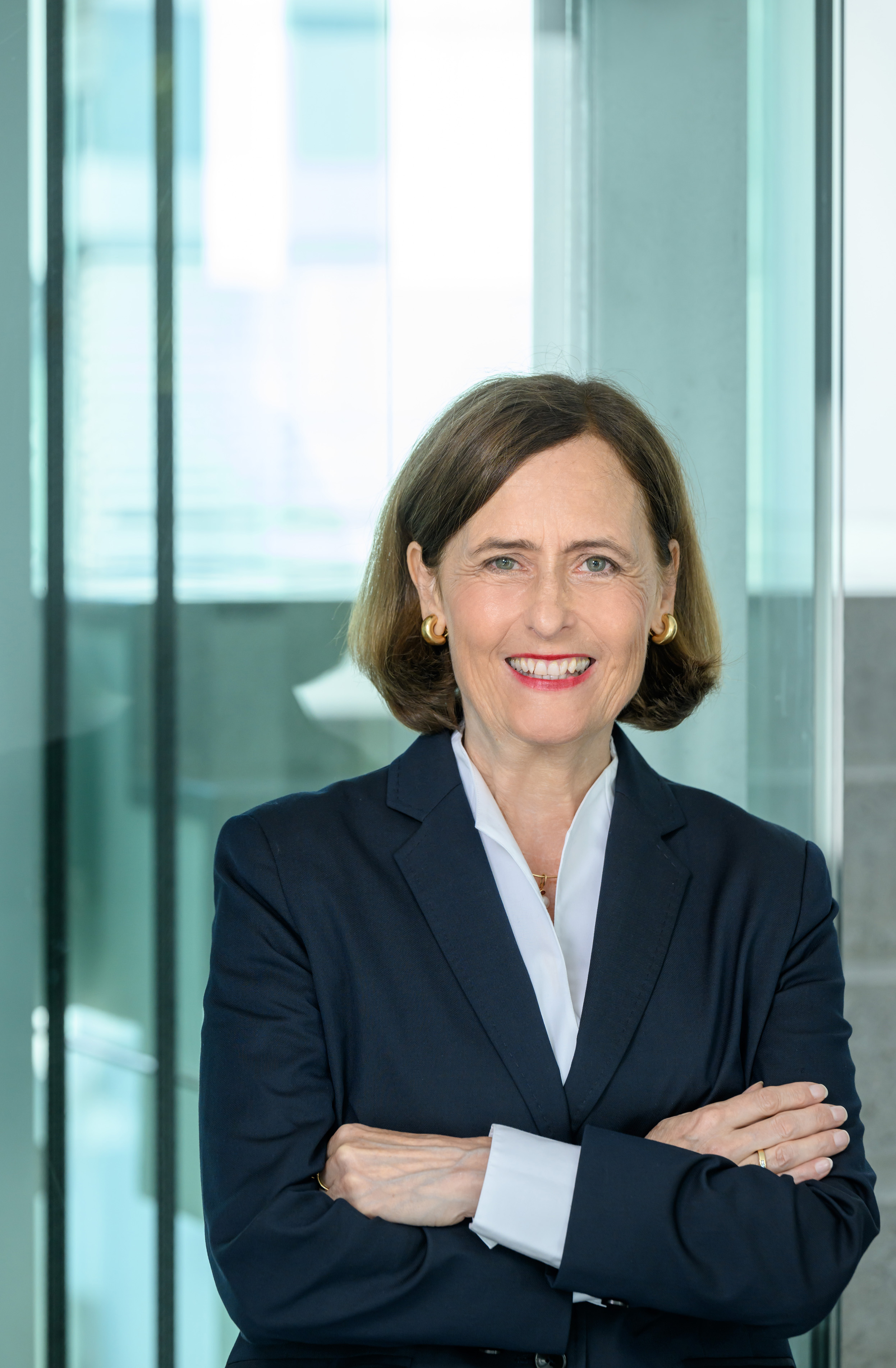Virtual GAIN
(09/09/20) Outside of Europe, the annual meeting of GAIN – normally held in either Boston or San Francisco – is the biggest networking event for research careers in Germany. Because of the Coronavirus pandemic, the meeting had to be moved online, which proved to be no small feat for the three organizations behind GAIN – the Alexander von Humboldt Foundation (AvH), the German Academic Exchange Service (DAAD), and the German Research Foundation (DFG). The challenge of course came with the opportunity to invite researchers from around the globe, broadening the reach of GAIN.

Eingangsbild von Virtual GAIN20
With the new format, the number of participants reached almost 900 and revealed great interest for a networking event like GAIN outside North America as well. The participants made good use of the opportunities to meet with high-ranking representatives from research organizations, the political sphere, and the private sector, not least because the fallout of COVID-19 particularly affects early career researchers, creating an uncommon need for information and guidance.

Anja Karliczeck, Federal Minister of Education and Research
© GAIN
In her opening remarks, the Federal Minister of Education and Research, Anja Karliczek, emphasized the goal of Germany’s federal government to make career paths for excellent young researchers even more attractive and mappable. To that end, until 2032, the federal government will invest one billion Euros into a tenure track program to establish 1,000 new tenured professor positions, while the federal states will establish 1,000 additional permanent positions at the universities. Ms. Karliczek encouraged the GAIN community to (re-)join the broad German research enterprise and enrich it with their knowledge, experience and networks. They will be met by a wealthy private sector and an internationally minded society that “cares about scientific research.” She called on the audience not to be dispirited by COVID-19. “We need you more than ever before,” said Karliczek.
DFG-Präsidentin Professorin Dr. Katja Becker
© DFG / David Ausserhofer
The tradition and continuity of the GAIN meetings “bear witness to the open-mindedness of scientific research,” Dr. Katja Becker, president of the DFG, said in her opening remarks. While there has always been ample willingness for cooperation in international research, an administrative framework is necessary to maintain it, because results of scientific research can also increase competition between countries and societies, as with the heated struggle to secure vaccines and drugs. Within the science community, cooperation should always come before competition, and for that, researchers must be able to rely on their societies and political systems. She continued, “That raises the question of how best to insulate researchers from pressure to produce results quickly and in a PR-ready fashion.” This question is even more relevant for young researchers who still have to make a name for themselves. In times of greater societal expectations, the standards of scientific integrity and the established culture of presentation of research results are even more important: “Relevant research is diligent research and it needs time,” said Becker.
“Established networks have the most resilience and are better suited to withstand such difficult times,” Joybrato Mukherjee, president of the DAAD, said in his greetings. In times of limited mobility, virtual GAIN provides young researchers with the opportunity to widen and enhance their own networks. Hans-Christian Pape, president of the AvH, concluded the round of opening remarks by encouraging the audience to be “confident and optimistic” as a part of society that is “too big to fail.” He added, “You are helping to fight the spread of the virus, to develop drugs and vaccines, and to investigate the social aspects of this crisis.” As with all other German research funding organizations, AvH’s reaction to the crisis has been highly flexible, and we are all working towards an integration of this flexibility into our programs.
Virtual GAIN took place over two days of four hours each with a program format similar to past GAIN conferences. Within a virtual “Talent Fair” of about 60 exhibitors from academia, research institutions, research funders and the private sector, the DFG staff answered questions about the pursuit of research careers in Germany. In a number of parallel workshops – some of them available as a webcast to a wider audience – GAIN delivered valuable stratagems for career planning and information about recent developments in Germany, such as the brand-new National Research Data Infrastructure program administered by the DFG, as well as career opportunities in the Excellence Strategy and the funding initiative “Artificial Intelligence.”
In another workshop, the DFG demonstrated strategies to research funders and scientific institutions to better support diversity and equal opportunity in the research enterprise. Networking at Virtual GAIN happened at a “coffee lounge” that featured live chats as well as video encounters and a widely used bulletin board. One of the highlights was the final round of seven Science Slams. The audience awarded the first prize of $3,000 to Martin Skrodzki, postdoc at RIKEN in Japan, for his presentation of the challenges in researching self-driving cars – for example, how they would recognize moving objects. Mathematician and computer scientist by trade, Dr. Skrodzki was able to explain the necessary “cutting of corners” that any algorithm for the recognition of objects has to make, and the risks that come with it.
Virtual GAIN will be evaluated by AvH, the DAAD, and the DFG as to what elements could be used to enhance the virtual or physical meetings planned for the future. Overall, the participants agreed that despite the challenges of COVID-19, it has also presented the GAIN community with opportunities, new perspectives, and newly acquired global communication skills on a virtual platform. Nevertheless, most hope to meet in person next time, at the GAIN Meeting 2021 in San Francisco.
